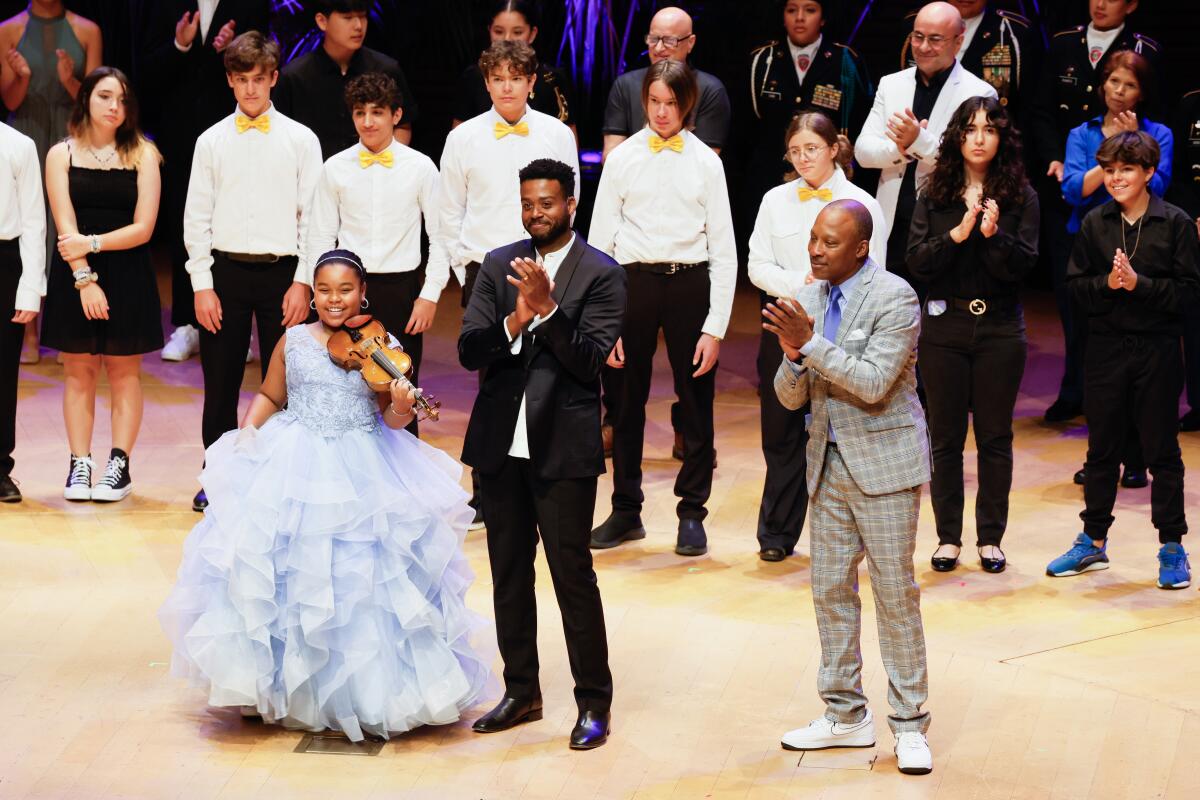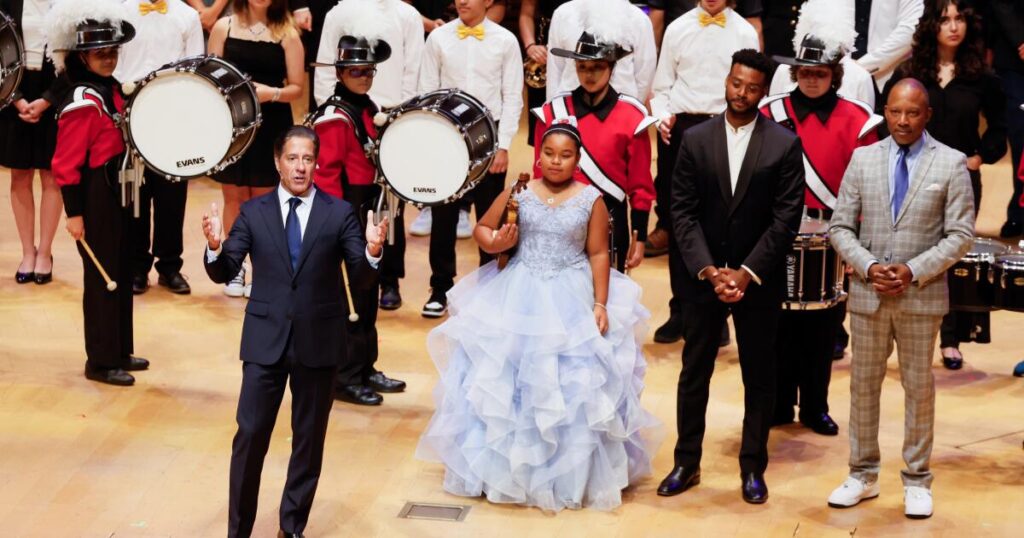The Los Angeles school system’s standardized test scores improved across all tested grades in math and English, taking a step forward from a pandemic-era learning setback. Alberto Carvalho announced Tuesday that even though most students are still below the state’s grade-level standards.
At this time, Los Angeles’ results cannot be evaluated in a broader context because the California Department of Education has not publicly released statewide scores from the 2024 spring semester tests.
However, the scores show that students in Los Angeles have begun to rebound from the severe lows of the pandemic, when campuses were closed for more than a year and students did their best to keep up through distance learning.
In terms of English, the English proficiency of students in the district has increased from about 41% to 43% year by year. Mathematics scores improved to 32.8%, an increase of 2.3 percentage points. Proficiency rates measure the percentage of students who meet California’s student learning standards for a specific grade or subject.
Officials say test scores have improved only once in each grade since the current testing system began in 2015.
“Simply put, you are closing the achievement gap,” Carvalho told district employees in a speech that stood out compared to some others for expressing gratitude and praising others. “I have never worked with talent like the ones represented here today.”
“Everyone’s demographics have improved, and it’s really shocking,” Carvalho said in an interview.
Proficiency rates show the district still has a long way to go, including catching up to pre-pandemic academic achievement levels. But Carvalho said that in some grades, whether in math or English, student test scores are at or close to pre-pandemic levels.
Rather than focusing on proficiency, Carvalho and other district officials called for a focus on a meaningful but obscure metric: distance from standards. The measure takes into account all outcomes for all students, and on average, district students are getting closer to “standards,” or what students should know by a given grade level.
California tests students in grades 3-8 and 11 in math and English.
Students are also tested in science in fifth and eighth grades and in high school. District officials say they are not yet ready to release the results of scientific testing.
The first day of the new school year is August 12th.
This year, the annual high-profile homecoming address was held earlier than usual, coinciding with the start of meetings and training for principals and other administrators, who attended the event along with other officials and guests.
One new initiative is the Principals Academy, which will launch a two-year training program for aspiring managers. Learning materials will include how to understand data and use them to make positive change. The training process will also provide guidance to principals before and after they start running the school.
The gathering, held at Disney Concert Hall downtown, has become an annual showcase and promotional opportunity for administrators. Carvalho embraced elements of showmanship on stage perhaps uniquely before him, speaking without notes, moving around the stage with ease and telling jokes with the help of timely slides.
He was preceded by student musicians, dancers and singers, many dressed in colorful costumes.

Academy Award winner Kris Bowers of “The Last Fix Shop” applauded after violinist Porche Brinker and other members performed at the Los Angeles Unified School District.
(Alan J. Schaben/Los Angeles Times)
Carvalho used the opportunity to highlight initiatives and shining moments across districts, including an Oscar-winning short film about the school system’s musical instrument repair shop. The film is sparking a $15 million funding campaign to support the production.
Another high-profile effort is providing families with mobile laundry carts that clean students’ clothes while they’re at school and parents at work. The scale of the effort is more symbolic than a sweep, but it’s intended to send a message about how hard the school system is working to help families.
One upcoming project is a mobile eSports lab, where learning tasks are “gamified,” or turned into gaming activities.
The director has veered into controversial territory by promoting what he calls increased spending on the arts. Critics accuse the district of illegally diverting funds for arts instruction.
The star of last year’s presentation, the chatbot “Ed”, was not invited to this year’s event. A year ago, Carvalho touted Ed as an AI-enhanced student advisor who would be part of each student’s unique, personal acceleration plan.
While this is still the plan, the full rollout of the program has been put on hold. It has been difficult to find students, faculty, or other staff members who have used any part of the system since it was officially launched. Most schools do not offer this service.
The well-known chatbot has been completely unplugged following the apparent financial collapse of AllHere Education, the Boston-based company that provided the technology.
In an interview before the Disney event, Carvalho said he would form a working group of independent experts to conduct a broad review with the goal of updating artificial intelligence efforts. A key focus is whether the district can strengthen its bidding process and oversight to prevent similar situations in the future.
Carvalho said he expects the task force, once formed, to complete its work in about three months.

